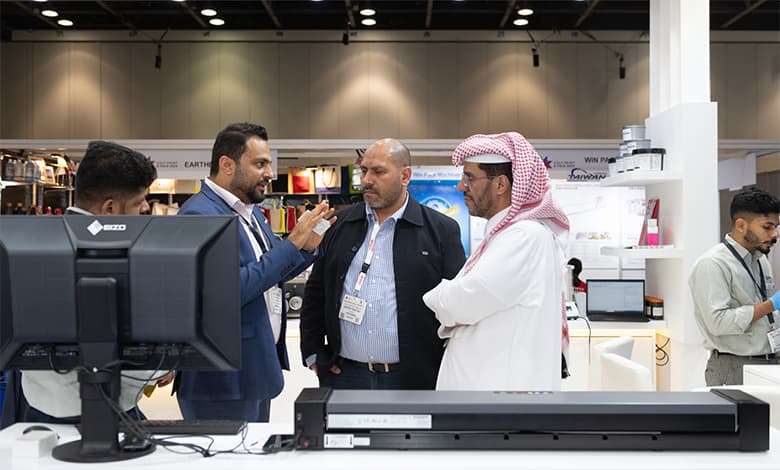One of the key goals of Saudi Vision 2030 is to substitute imports with domestic production across a vast range of consumer and industrial product categories. The Kingdom aims to carry out this ambitious project in a highly sustainable way using cutting-edge machinery and software tools.
This helps define what packaging machinery and materials will be required for global suppliers looking to invest in Vision 2030-related projects.
F&B giant Nestlé recently announced a partnership with Saudi Authority for Industrial Cities and Technology Zones (MODON) to significantly boost local food production by constructing its first food manufacturing plant in the Kingdom. The agreement, signed in September 2024 in Riyadh, allocates a 1,17,000 sq m plot in Jeddah Third Industrial City for the facility.
With an initial production target of 15,000 tonnes per annum, the project will focus on producing Nestlé infant formula in its first phase and will feature an automated production line with state-of-the-art packaging and filling technologies operated by local professionals.
So what kinds of packaging machinery and systems are we looking at here and what technology trends will capture the interest of visitors to Gulf Print & Pack 2025?
The first key factor is flexibility, which means packaging machinery is not left obsolete by rapid changes in market demands. Flexibility in packaging machinery ranges from the ability to handle different sizes and types of products, to being able to reconfigure a packaging line by using modular units which can quickly and efficiently be used to perform different work. The ability to link modular units with conveyors or by automated guided vehicles (AGVs) or autonomous mobile robots (AMRs) is one among the many ways towards truly flexible work environments.
Programmable controls also add flexibility and make changeovers faster – they are an increasingly important element in machinery specifications. Beyond programming, machine learning and artificial intelligence (AI) adds to the way that packing operations can be designed to remain relevant to the changing demands of the packaging industry.
Automation means the elimination, where possible, of manual handling and inspection operations. Saudi Vision 2030 envisages training a skilled workforce, moving away from reliance on manual labour. Visitors to Gulf Print & Pack 2025 can see turnkey solutions that reduce labour, increase efficiency, and maximise output using fully automated packaging systems with advanced Human Machine Interfaces (HMIs). Automation means businesses can redeploy staff to profit-making roles such as research and development.
Automated equipment runs faster than any processes requiring manual operation, and is more accurate, meaning less spoilage. Automated machinery also allows for 24/7 operation.
Robotics will form an essential part of any future packaging machinery line, and since the new industrial capacity in Saudi Arabia will be built on greenfield sites, it can be designed with robotics in mind from the outset.
Alternatively, robotic equipment can be progressively integrated into existing operations. For example, a robotic arm could be installed which could improve pick and place operations, and modern robots are able to handle even the most delicate items.
Further examples of robot application include end of line work, such as dramatically improving palletising, stretch-wrapping, and labelling operations.
Collaborative robot or cobot, the latest technology in robotics, has revolutionised the world of automation. A cobot is intended for direct human-robot interaction within a shared space, or where humans and robots are in close proximity. Cobots take over repetitive, tedious, and physically demanding tasks, leaving employees to manage processes and to undertake work which cobots cannot do, such as clearing obstructions or fixing component breakdowns.
Accurate controls are at the heart of automation, and the role of ever-more capable vision systems is key to machine control, measurement, and inspection. The move towards stereo vision allows extremely detailed monitoring of processes while they are running, and examination of any flaws in finished products and packages.
X-ray vision systems are increasingly important for highly accurate examination of package contents and product batches. Modern vision systems can eliminate the need for manual code validation and inspection, with the capability to reduce false rejection rates. Vision systems are also behind the rise of AGVs and AMRs, giving them the ability to work around obstacles.
Another key trend in fast-developing markets such as Saudi Arabia is the growing importance of e-commerce.
In the past, packaging operations for retail products have centred on bulk distribution to central retailer warehouses for onward bulk distribution to stores. By contrast, e-commerce deliveries to the home are for individual items or small groups. The types of packaging are also seeing advancements, with most items shipped in cardboard boxes using kraft paper, polystyrene pellets, air-filled pillows, or bubble wrap as void filling materials. Cartons also rely on extensive use of tape.
We can expect to see more sustainable void materials being employed and new developments in minimalist packaging technology. Also, more innovative e-commerce packaging trends will emerge to cater for an enhanced customer experience. Pack design will increasingly incorporate access to interactive online experiences through QR codes, and scannable links to augmented reality and virtual reality brand experiences.
Another trend in e-commerce has seen pouches replacing heavier jars, and bag-in-box liquids replacing glass bottles.
Gulf Print & Pack 2025 presents a unique opportunity for suppliers of innovative and automated packaging machinery and sustainable packaging materials to make a lasting impact on the practical implementation of Vision 2030.
